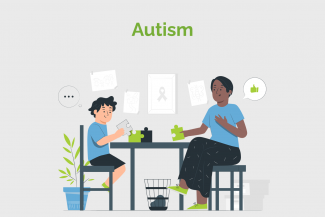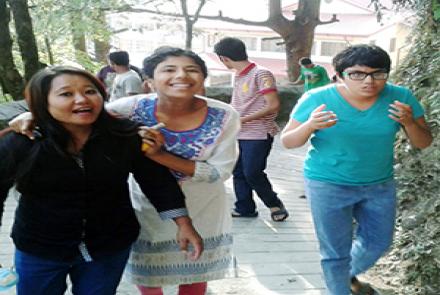
While there’s no proven cure for autism yet, treating ASD early using school-based programmes, and getting proper medical care can greatly reduce ASD symptoms and increase your child’s ability to grow and learn new skills. Many children with autism can develop significantly with early, well-planned and individually tailored educational efforts in specially adapted settings.
A diagnosis of ASD is nerve-wracking for parents as they struggle to understand the challenge they are facing and find the right doctors and therapists to assist their child. Early diagnosis followed by individualised early intervention can provide the best opportunities for achieving their potential.
Speak to your doctor or therapist about finding the right school for your child. This may need to be a specially adapted nursery, which has the skills to support your child’s needs.The important thing is to act immediately and put in place an effective early intervention programme.
Other treatments and therapies
Other types of treatments or therapies have been used for children with ASD, such as:
speech and language therapy,.music therapy, occupational therapy,. acupuncture, vitamins and mineral supplements,.massage therapy. There is also the Picture Exchange Communication System (which teaches kids to show pictures of things or activities they want) and Responsive Prelinguistic Milieu Teaching (which uses play in a natural setting to prompt or teach desirable behaviours).
Does medication help?
Medication has not been shown to help the main problems of ASD. Your child should not take medication on its own to help with ASD – it should be part of their overall care.
Medication can be useful for some of the symptoms or difficulties your child may have (for example, ADHD or very aggressive behaviour). Your child may also have epilepsy or other medical problems and may need medication for those. Doctors prescribe medications off-label* to try to help the youngest patients, but more research is needed to be sure that these medicines are safe and effective for children and teens with ASD. (*Off-label means that the drug has not been proved to be successful in the treatment of a particular disease by the FDA, however it is legal and common.)
Before considering medication, healthcare professionals should assess your child’s surroundings (at school and home) and daily routines (for example, their sleep, meals and activities). Changing some of these may help your child. The health-care professionals should also talk to you and your child about the risks and benefits of taking medication.
Medication can be used along with other kinds of treatment, and sometimes they may work together to be more effective. Your child should only be given medication by health-care staff who have been trained and can get help or advice if they need it. If your child is trying any medication, there should be a plan about how long to try it and how you will decide if it helps.
At this time, the only medications approved by the FDA to treat aspects of ASD are the antipsychotics risperidone (Risperdal) and aripripazole (Abilify). These medications can help reduce irritability, meaning aggression, self-harming acts, or temper tantrums in children ages 5 to 16 who have ASD.
Some medications that may be prescribed off-label for children with ASD include the following:
Antipsychotic medications are more commonly used to treat serious mental illnesses such as schizophrenia. These medicines may help reduce aggression and other serious behavioural problems in children, including children with ASD. They may also help reduce repetitive behaviours, hyper-activity, and attention problems.
Anti-depressant medications, such as fluoxetine (Prozac) or sertraline (Zoloft), are usually prescribed to treat depression and anxiety but are sometimes prescribed to reduce repetitive behaviours.
Stimulant medications, such as methylphenidate (Ritalin), are safe and effective in treating people with attention deficit hyperactivity disorder (ADHD).
Here is one parent's journey of handling the autism diagnosis and intervened early: http://www.patientsengage.com/personal-voices/special-journey

















